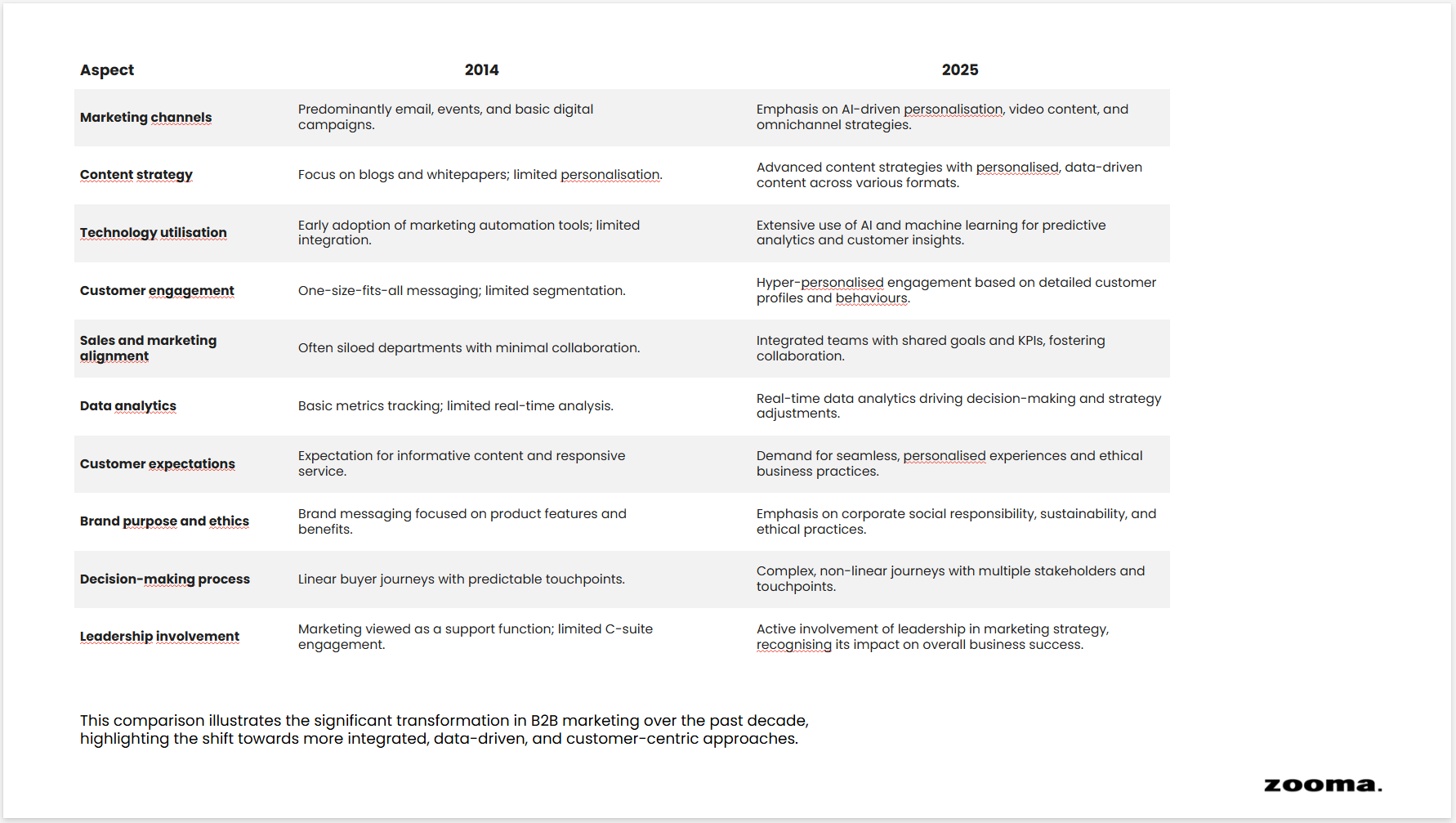In 2014, I published an article titled 'Is marketing harder today?' on the Onlinification Hub. At that time, digital transformation was accelerating, and marketers were grappling with the complexities of emerging channels, shifting buyer behaviours, and the need for greater alignment between marketing and sales.
Fast forward to 2025, and the landscape has evolved dramatically. The challenges have intensified, but so have the opportunities for those willing to adapt and lead.
Here are some things that weren't apparent in 2014.
The rise of AI and automation
Artificial intelligence (AI) has become integral to B2B marketing strategies. From predictive analytics to personalised content delivery, AI enables marketers to make data-driven decisions and automate routine tasks. However, adopting AI requires careful oversight to ensure accuracy and ethical use.
Economic uncertainty and consumer behaviour
Global economic fluctuations have impacted consumer confidence and spending habits. Marketers must now be adept at reading economic indicators and adjusting strategies accordingly. Flexibility and agility are essential, as campaigns may need rapid recalibration in response to market shifts.
The demand for authenticity and purpose
Modern consumers, particularly millennials and Gen Z, prioritise authenticity and social responsibility in the brands they support. Marketing strategies must go beyond product promotion to encompass brand values, ethical practices, and community engagement. Brand activism has become a powerful tool, but it requires genuine commitment and alignment with organisational values to avoid perceptions of insincerity.
Strategic imperatives for B2B leaders
To navigate the complex environment, B2B leaders must focus on the following strategic imperatives:
Embrace data-driven decision making
Leveraging analytics is crucial for informing strategy and measuring performance. Businesses can gain insights into buyer behaviour, preferences, and trends by analysing customer data, enabling more targeted and effective marketing campaigns.
Foster integrated marketing communications
Ensuring consistency across all channels and touchpoints is vital for building brand trust and recognition. Integrated marketing communications involve coordinating messaging and branding across various platforms to provide a seamless customer experience.
Prioritise agility and flexibility
Preparing to pivot strategies in response to real-time feedback and market changes is essential. Agile marketing practices allow teams to quickly adapt to new information, test different approaches, and optimise campaigns for better results.
Uphold ethical considerations
Prioritising data privacy, transparency, and social responsibility in all marketing efforts is ethical and builds consumer trust. Companies must ensure compliance with data protection regulations and communicate their values to stakeholders.
Commit to continuous learning and adaptation
Staying abreast of technological advancements and evolving consumer expectations is crucial for long-term success. Investing in ongoing education and professional development helps teams remain competitive and innovative.
What remains, and what's new
Reflecting on the insights from my 2014 article, it's clear that while the core marketing principles remain, the tools, channels, and consumer expectations have transformed dramatically.
Marketing in 2025 is undoubtedly more complex but offers unprecedented opportunities for innovation, engagement, and impact. By embracing change and focusing on authenticity, agility, and data-driven strategies, marketers can navigate this dynamic landscape and drive meaningful connections with their audiences.
Are you curious how B2B marketing has transformed over the last decade?
Discover how it has evolved in our free overview.





